cuba
Latest
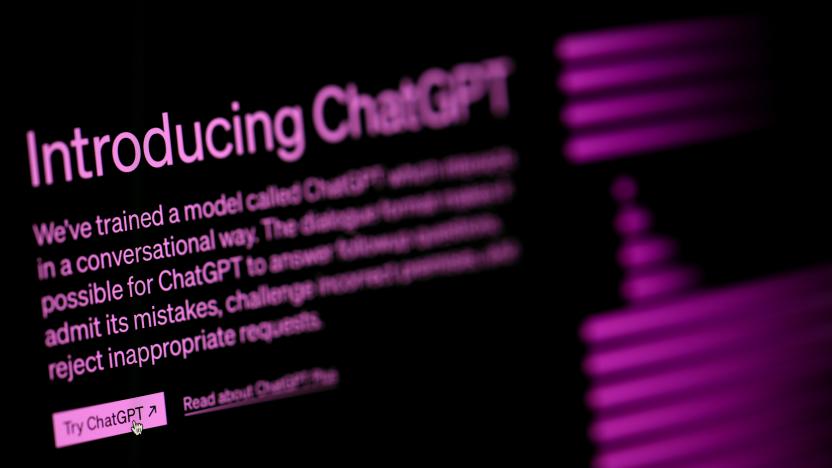
Recommended Reading: The websites that make ChatGPT and other AI sound smart
Recommended Reading highlights the week's best writing on technology and more.

Cuba blocks access to Facebook and Telegram in response to protests
As protests continue in Cuba over the country’s handling of the coronavirus pandemic and the surrounding economic fallout, the Cuban government has moved to restrict access to social media and messaging platforms.

Twitter suspends 1,600 accounts linked to state disinformation networks
It blocked accounts allegedly run by Iran, Saudi Arabia, Cuba and Thailand.

Study finds changes in Cuban diplomats' brains, but no sign of attack
Scientists are still unsure of why a group of US diplomats in Cuba experienced mysterious neurological symptoms, but they're still looking for answers. A new study published today in JAMA by the University of Pennsylvania reveals that brain changes were found in US government officials who were stationed in Havana. But there's still no proof to the theory that the diplomats were attacked by a sonic weapon.

Google, Cuba deal could bring faster internet to the island
Today, Google signed a memorandum with Cuba's telecom monopoly ETECSA to create a cost-free connection between the two networks. Doing so will boost Cuba's internet speeds, but this peering agreement comes with a catch. Cuba will first need to install a new undersea fiber-optic cable to physically connect its network with a Google "point of presence." And that could take years.

Slack apologizes for 'mistakenly' banning people who had visited Iran
On Wednesday a number of people noticed their Slack access had suddenly been revoked, and the company said it was due to complying with "U.S. trade embargoes and economic sanctions regulations." However, it had cut off people who weren't logging on from countries impacted by sanctions or embargoes, although as TechCrunch noted, some said they had traveled to countries like Iran, North Korea or Cuba. Late Friday Slack apologized for its far-too-wide-reaching bans, claiming that "we made a series of mistakes and inadvertently deactivated a number of accounts that we shouldn't have." Slack: We did not block any user based on their nationality or ethnicity. As is standard in the enterprise software industry, Slack uses location information principally derived from IP addresses to implement these required blocks. We do not collect, use, or possess any information about the nationality or ethnicity of our users. We have restored access to most of the mistakenly blocked accounts, and we are working hard to restore any remaining users whose access was blocked in error. If you think we've made a mistake in blocking your access, please reach out to feedback@slack.com and we'll review as soon as possible. Going forward, the company said it will "soon" block access to IP addresses from certain countries. While users who travel their may not have access while connected to those networks, they won't be banned and can log in when they're in another region that isn't under legal sanctions.
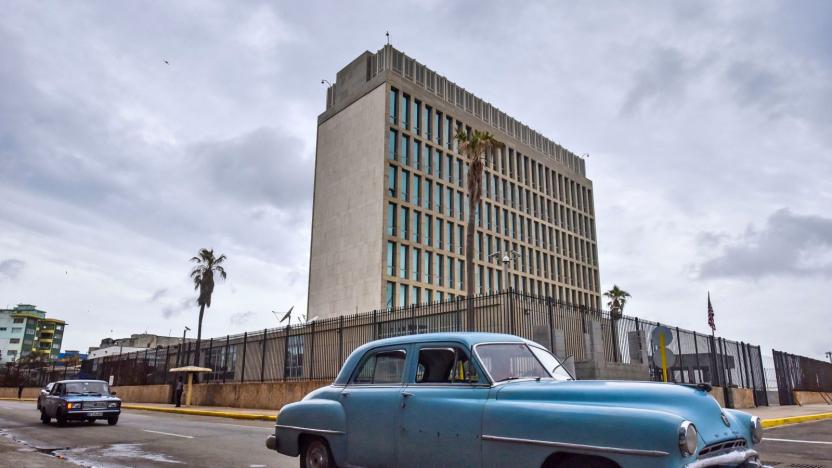
Embassy 'sonic attacks' may have been microwave blasts
When researchers postulated that the "sonic attacks" on embassies in Cuba (and more recently China) were the fault of malfunctioning surveillance gear, that wasn't the end to concerns about the true cause... if anything, there's more worry than ever. The University of Pennsylvania's Douglas Smith (who led a paper discussing the trauma of embassy victims) said in an interview that microwave blasts are now considered primary candidates. The concussion-like symptoms more closely line up with microwaves and other radio frequency-related illnesses than previous explanations, including straightforward acoustic attack, anxiety or viruses.
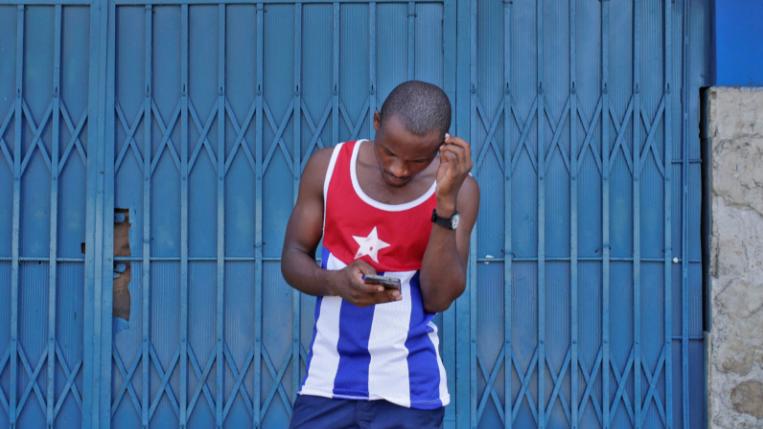
Cuba is rolling out mobile internet nationwide
The Cuban government has launched a program that will see mobile internet rolled out nationwide by the end of the year. Communist-run Cuba is one of the least connected countries in the Western Hemisphere due to a lack of resources, the US trade embargo and the government's low-tolerance approach to public dissidence, but new President Miguel Diaz-Canel says greater internet access will help to boost the economy and help Cubans "defend their revolution."
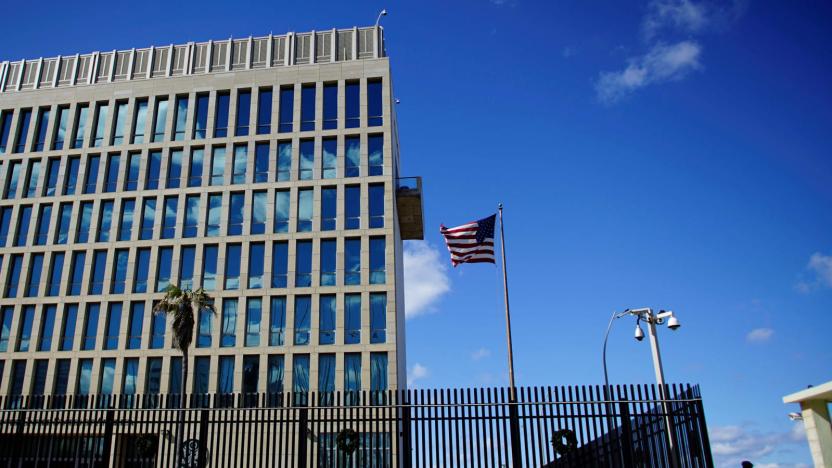
Cuba's 'sonic attacks' may have been a side-effect of spying
Remember those 'sonic attacks' against the American and Canadian embassies last summer, making staff queasy and raising all kinds of questions as to what happened? There might be an answer. University of Michigan researchers have theorized that the incidents were really the result of ultrasonic signals from poorly functioning surveillance equipment. While individual ultrasonic signals can't harm people outside of extreme circumstances, multiple signals can clash with each other and produce a sound that's just low enough to be audible.

Apple Music’s Major Lazer documentary is streaming now
A new music documentary begins streaming today on Apple Music. Give Me Future chronicles Major Lazer's 2016 concert in Havana, Cuba -- the first to be put on by major American artists since the US restored diplomatic ties to the country in 2015. The group, made up of Diplo, Walshy Fire and Jillionaire, performed for 400,000 people in the country's capital, the planning for which and the performance were documented by director Austin Peters.

Google becomes first foreign internet company to go live in Cuba
After former President Obama reopened America's diplomatic relations with Cuba, businesses started looking for opportunities to make inroads to the island nation. Google was one of these, with Obama himself announcing it would come to help set up WiFi and broadband access there. Cuba's national telecom ETECSA officially inked a deal with Google back in December, and today, they finally switched on the service, making the search giant the first foreign internet live on the island.

Encrypted chat app Signal sidesteps censorship in Cuba and Oman
Signal, the messaging app that prides itself on circumventing government censorship, has a few new places where its flagship feature works. Last week it was Egypt, and now users in Cuba and Oman can send messages without fear of them being intercepted and altered by lawmakers. As VentureBeat reports, the domain fronting feature is only available on Android now, but, like the Egypt update, it should arrive on iOS shortly thereafter. Given Cuba's penchant for censoring what its citizens see, and its launch of state-sponsored home internet service, the timing is perfect.

Cuba opens its first computer factory
Cuba is slowly opening up to technology, but it hasn't actually been making technology. Its exports are dominated by natural products like nickel, sugar and tobacco. The nation is about to diversify, however: it just inaugurated its first computer factory, which officials claim will "promote technology and digital literacy." It's a modest plant, to put it mildly. The factory is only capable of producing 120,000 devices per year, and Chinese electronics giant Haier is shouldering a lot of the responsibility by supplying equipment, tech and training. The facility is thoroughly modern, however, and will make modern laptops (using Celeron, Core i3 and Core i5 chips, Cuba eagerly points out) as well as 8- and 10-inch tablets.
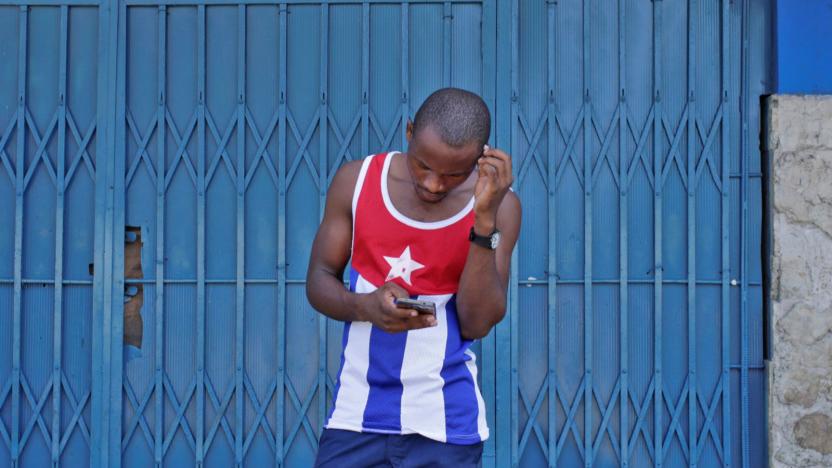
Cuba tries offering home internet access
It's all well and good that Google is offering faster access to its services in Cuba, but there's a glaring problem: most Cubans have to go out of their way to use them. Home internet access isn't an option, so most residents have to either crowd around public WiFi hotspots or sit down at an internet terminal. Things are looking up, though: Cuba's state-owned telecom ETECSA is launching a trial for home internet access. About 2,000 homes in Havana will go online for at least two months, with promises that the test will expand if it goes well during the initial period.

Cuba signs deal with Google to speed up access to its services
A lot has happened since President Obama announced that Google would work with Cuba to speed up its internet. There's a new president in waiting and Fidel Castro has passed away, but the pledge to boost the country's connectivity is moving along thanks to a new agreement between the search giant and Cuba's national telecommunications company ETECSA.
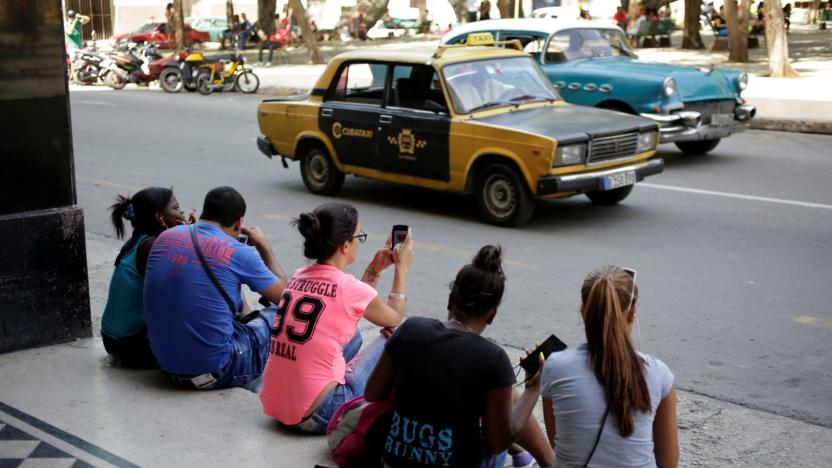
Cuba has been filtering texts containing political dissent
Cuba's struggles with modern telecommunications have been many. Now, it looks as though the Communist country has another problem on its hands: text message censorship. SMS sent with words including "human rights," "hunger strike" and the name of dissident José Daniel Ferrer García aren't reaching their intended recipients according to Reuters and Cuban blog 14ymedio (Spanish). The news came to light when some Cubans noticed they were being charged for messages that never were delivered.

T-Mobile customers can roam in Cuba
As US-Cuban relations thaw, Western businesses have moved in and started paving the way for tourism. Sprint and Verizon made arrangements last fall with Empresa De Telecomunicaciones De Cuba, S.A. (ETECSA) last fall to get their vacationing customers can use text, data and voice within the country. T-Mobile just announced a similar deal with the government-owned Cuban telecommunications company for roaming privileges and cheaper calls into the island nation.
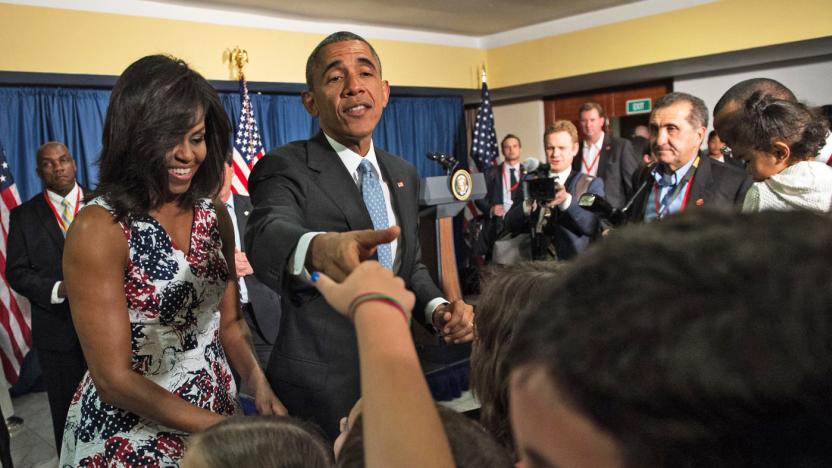
Google plans to bring internet to Cuba, Obama says
Google will be one of the first American companies to help open up Cuba to the internet, President Obama announced this morning during his historic visit. "One of the things that we'll be announcing here is that Google has a deal to start setting up more WiFi and broadband access on the island," he said in an interview with ABC News. It's still unclear what, exactly, Google plans to launch, but we've reached out for additional comment. The news comes more than a year after the US announced warmer relations with Cuba, which brought with it the possibility for American companies to do business in the country.

Sprint signs first direct roaming agreement with Cuba
Not so fast Verizon, Sprint announced Monday that it is the first US carrier to ink a direct roaming agreement with Telecommunications Company of Cuba (ETECSA). This agreement, along with a similar deal for direct long-distance interconnection, means that Sprint customers will be able to use their phones on the island just as they do in the US. According to the announcement, nearly 3 million Americans will visit Cuba this year and that number is expected to balloon to more than 5 million within the decade. [Image Credit: Getty Images]

Verizon becomes first US carrier to offer roaming in Cuba
Verizon announced on Thursday that it will begin offering call, text and data access to customers visiting the Caribbean nation as part of its Pay-As-You-Go International Travel option. The plan will charge $3 a minute for voice, standard international messaging rates and a whopping $2.05 per megabyte. That means you'd be on the hook for more than two grand if you used a gigabyte of data while on the island. At those rates, you'd be better off bringing a pocket full of change and taking your chances with a public pay phone. This announcement comes on the heels of T-Mobile's declaration that it is expanding its Simple Global plan to 20 more countries (though not Cuba). [Image Credit: Getty Images]













